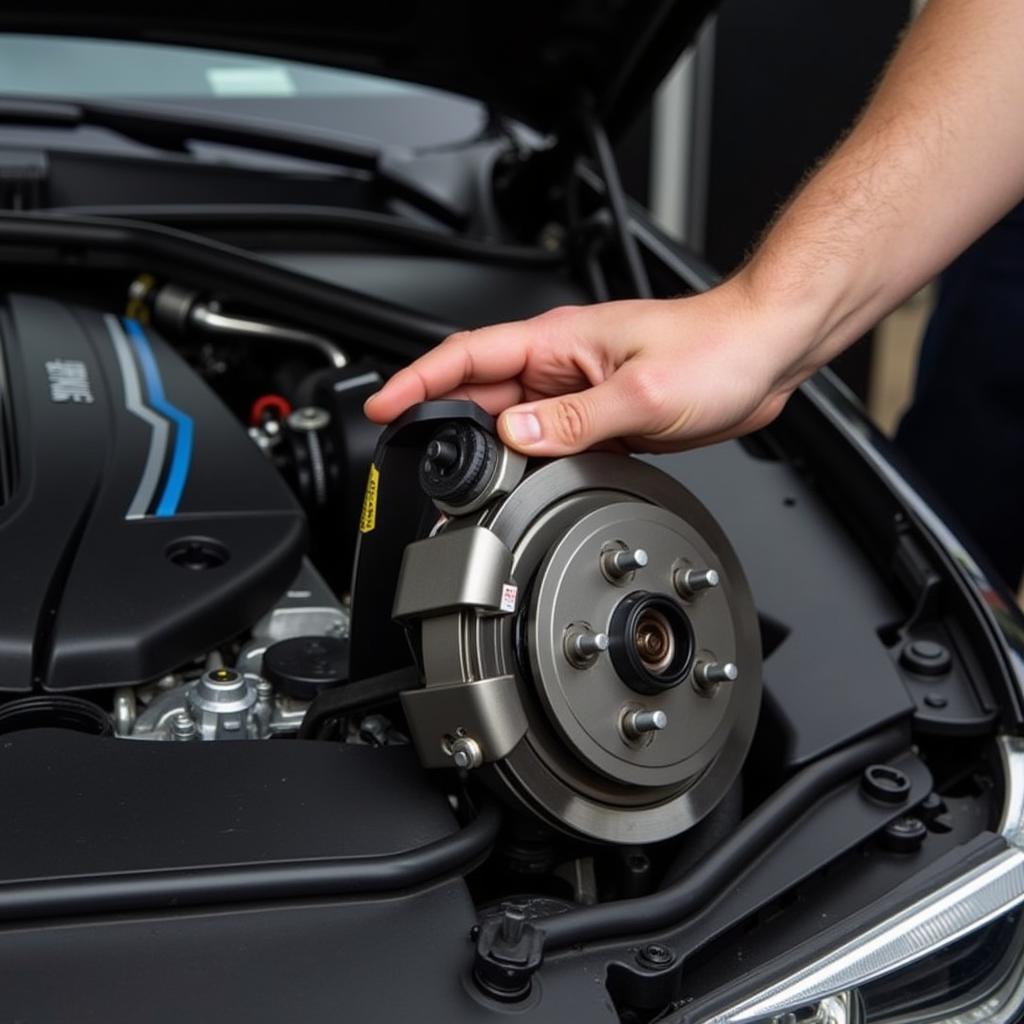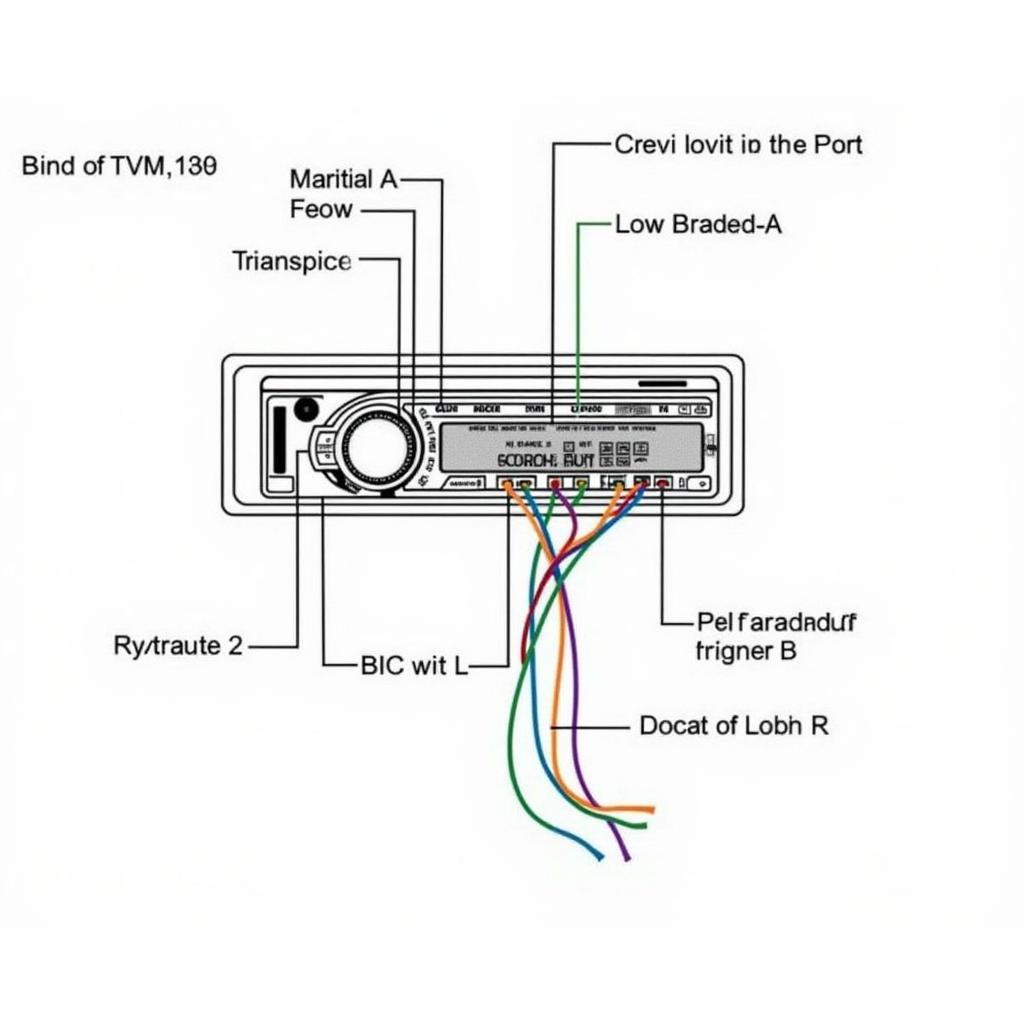Seeing a “brake service” warning light illuminate on your BMW’s dashboard can be unsettling. While it’s a concerning sight, it’s important to understand this warning doesn’t always signify a critical emergency. It serves as an indication that a component within your BMW’s braking system requires attention.
Understanding Your BMW’s Brake Warning System
BMW vehicles are equipped with sophisticated sensor systems that constantly monitor various components. When it comes to brakes, these sensors keep track of brake pad wear, brake fluid levels, and the overall health of the braking system. Any irregularity detected triggers the brake service warning light, prompting you to investigate and address the issue.
Common Reasons for a BMW Brake Service Warning
Here are some of the most frequent reasons why your BMW might be displaying a brake service warning:
-
Worn Brake Pads: This is the most common cause. Brake pads have wear indicators that trigger the warning light when they wear thin, signaling it’s time for a replacement.
-
Low Brake Fluid: Brake fluid is essential for transmitting force when you press the brake pedal. Low brake fluid levels can indicate a leak in the system, which needs immediate attention.
 Checking BMW brake fluid level
Checking BMW brake fluid level
-
Faulty Brake Sensor: Like any sensor, brake sensors can malfunction. A faulty sensor might send a false signal, triggering the warning light even if there’s no actual issue with the braking system.
-
Issues with the ABS System: The Anti-lock Braking System (ABS) plays a crucial role in preventing wheel lockup during braking. Problems within the ABS module or its components can also trigger the brake service warning.
What to Do When Your BMW Brake Service Warning Activates
-
Assess the Situation: If the warning light is accompanied by unusual noises or sensations while braking, such as grinding or a soft brake pedal, stop driving immediately and have your BMW towed to a qualified mechanic.
-
Check Brake Fluid: If it’s safe to do so, carefully check your brake fluid level. Refer to your owner’s manual for the location of the brake fluid reservoir and the recommended fluid type. If the fluid level is low, adding brake fluid might temporarily address the issue, but it’s crucial to have a mechanic diagnose the cause of the low fluid.
-
Schedule an Inspection: Whether you identify a potential cause or not, it’s crucial to have a professional diagnose the issue. What makes the brake warning light come on can be a complex question best answered by experienced technicians. They have the expertise and tools to pinpoint the problem accurately.
The Importance of Prompt BMW Brake Service
Ignoring a brake service warning can lead to more significant and potentially dangerous problems down the line. Addressing brake issues promptly ensures your safety and can prevent costly repairs in the long run.
 BMW brake service at a repair shop
BMW brake service at a repair shop
Remote Diagnostic Solutions for Your BMW
In today’s digital age, remote diagnostic services offer a convenient and efficient way to understand your BMW’s brake service warning. These services allow technicians to remotely access your vehicle’s computer system, read error codes, and often pinpoint the exact cause of the warning light. This can save you time and potentially reduce diagnostic costs.
Conclusion
A BMW brake service warning, while concerning, is a valuable alert system. Understanding its potential causes and responding promptly with a professional inspection is key to maintaining optimal braking performance and ensuring your safety on the road. Don’t ignore this warning—address it promptly to keep your BMW stopping safely and reliably.

